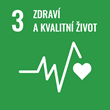Informace o projektu
TTV GUIDE TX
(TTV GUIDE TX)

- Kód projektu
- 896932
- Období řešení
- 5/2021 - 4/2026
- Investor / Programový rámec / typ projektu
-
Evropská unie
- Horizon 2020
- Health, demographic change and wellbeing (Societal Challenges)
- Fakulta / Pracoviště MU
- Lékařská fakulta
- Spolupracující organizace
-
Institut klinické a experimentální medicíny Praha 4
Universität Regensburg
Technische Universität Dresden
University of Groningen
Universiteit Leiden
Universidad de Granada
Medizinische Universitaet Wien
- Odpovědná osoba Gregor Bond
Université de Strasbourg
European Clinical Research Infrastructures Netwo
- Odpovědná osoba Jacques Demotes
Charité - Universitätsmedizin Berlin
Kidney transplantation represents the treatment standard for end-stage renal disease. Graft rejection due to inadequate immunosuppression is the leading cause for chronic graft dysfunction, and infectious disease due to reduced immune function is a major cause of death. Optimisation of immunosuppressive drugs is crucial to minimising the risk of infection and rejection and thereby prolonging patient and graft survival. The peripheral blood copy number of the prevalent and non-pathogenic Torque Teno virus (TTV) is associated with the grade of the immunosuppression of the host. Non-interventional studies suggest superiority of TTV copy number guided immunosuppression compared to standard strategies. EU-funded TTV GUIDE TX will test safety and preliminary efficacy of TTV-guided immunosuppression within a phase II randomised and controlled clinical trial.
Cíle udržitelného rozvoje
Masarykova univerzita se hlásí k cílům udržitelného rozvoje OSN, jejichž záměrem je do roku 2030 zlepšit podmínky a kvalitu života na naší planetě.
